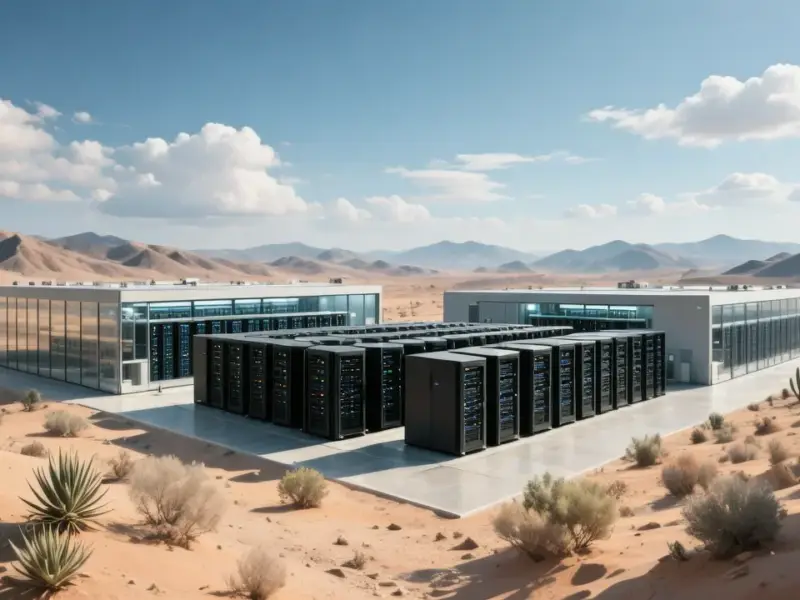According to Silicon Republic, Full Stack Energy, a Limerick-headquartered energy technology company founded in 2007 by Liam Relihan, has announced plans to expand into the US market through a partnership with Massachusetts-based energy market consultancy Skipping Stone. The Boston-headquartered consultancy was founded in 1996 and maintains additional offices in Houston, Los Angeles, and Tokyo. The partnership will combine both companies’ expertise to deliver data-driven solutions for utilities, traders, and energy service providers facing challenges around decarbonization, renewables integration, and distributed energy management. Full Stack Energy CEO Liam Relihan emphasized that the partnership expands their US presence and amplifies their ability to help clients thrive in rapidly evolving energy markets. This transatlantic collaboration represents a significant move in the global clean energy technology sector.
The Grid Modernization Technical Challenge
The partnership between Full Stack Energy and Skipping Stone addresses one of the most complex technical challenges in energy today: integrating distributed energy resources (DERs) into traditional grid architectures. Unlike conventional power systems with centralized generation, modern grids must accommodate bidirectional power flows from solar installations, battery storage systems, electric vehicles, and other distributed assets. This requires sophisticated grid modernization approaches that can handle real-time balancing, voltage regulation, and frequency control across thousands of interconnected nodes. The technical complexity increases exponentially when you factor in variable renewable generation patterns and the need to maintain grid stability during rapid transitions between energy sources.
Data-Driven Energy Management Architecture
What makes this partnership particularly interesting is the emphasis on “data-driven solutions” – this suggests both companies are approaching grid management through advanced analytics platforms capable of processing massive datasets from smart meters, grid sensors, weather forecasts, and market pricing signals. Effective DER management requires predictive analytics that can forecast renewable generation patterns, demand responses, and potential grid congestion points hours or days in advance. The technical implementation likely involves machine learning models trained on historical grid data, combined with optimization algorithms that can make real-time dispatch decisions for distributed assets while considering physical grid constraints and market economics.
US Market Entry Strategy and Implications
Full Stack Energy’s choice of Skipping Stone as a US partner is strategically significant. Skipping Stone’s established presence in key energy markets – particularly Houston (energy trading), Los Angeles (renewable integration), and Tokyo (advanced grid technology) – provides immediate access to critical industry segments. More importantly, Skipping Stone’s 28-year history in energy markets consulting means they understand the regulatory complexity of the US energy landscape, where policies vary significantly between states and regional transmission organizations. This knowledge is crucial for deploying European-developed energy technology in the fragmented US market, where interoperability standards and market rules differ substantially from those in the EU.
The Boutique Consulting Implementation Model
Both companies emphasize a “non-traditional consulting and solution design approach” using “small teams of experienced resources” – this suggests they’re avoiding the typical large-scale system integration model in favor of targeted, agile implementation teams. This approach makes technical sense for complex energy projects where requirements often evolve during implementation. Smaller, specialized teams can adapt more quickly to emerging challenges in DER integration projects, where unexpected technical interactions between distributed assets frequently require mid-project adjustments to control strategies and communication protocols.
Industry Outlook and Competitive Positioning
The timing of this expansion coincides with unprecedented investment in US grid modernization through initiatives like the Grid Deployment Office and Inflation Reduction Act funding. Full Stack Energy brings European experience from markets that have been aggressively pursuing decarbonization for decades, potentially giving them insights into challenges the US grid is only beginning to face. However, the success of this partnership will depend on their ability to adapt European-developed solutions to the unique characteristics of US power markets, including different grid architectures, market structures, and regulatory frameworks. If successful, this model could establish a template for other international energy technology firms seeking to enter the complex but opportunity-rich US energy transition market.




